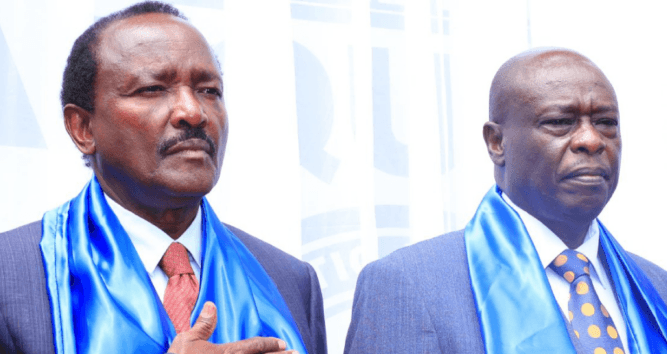

The World Health Organization (WHO) and the United Nations Inter-Agency Task Force on the Prevention and Control of Noncommunicable Diseases (UNIATF) have recognised countries and organisations leading the way in tackling obesity.\
During the 2025 UNIATF Awards on 25 September, 12 governments and seven non-State actors were celebrated for pioneering multisectoral action against the growing health threat.
The awards ceremony took place during the Tenth Annual Meeting of the Friends of the Task Force, Accelerating Action on Obesity Prevention and Management, held alongside the opening week of the Eightieth United Nations General Assembly and the Fourth UN High-Level Meeting on noncommunicable diseases.
“Obesity is largely preventable. Yet millions of people around the world face environments that make it easier to gain weight and harder to stay healthy,” said Dr. Jeremy Farrar, WHO Assistant Director-General for Health Promotion and Disease Prevention and Control.
“These champions demonstrate that progress is possible, and their leadership inspires collective action to stop obesity worldwide.”
WHO noted that global obesity rates have more than doubled over the past three decades.
One in eight people worldwide now lives with obesity, increasing the risk of diabetes, heart disease, certain cancers and other noncommunicable diseases (NCDs).
The WHO Acceleration Plan to Stop Obesity provides a roadmap for decisive action. It highlights five pillars: scaling up proven cost-effective actions, supporting delivery for real-world impact, driving global advocacy, engaging a wide range of partners and strengthening accountability.
This year’s awardees among ministries of health or related agencies included Egypt, Greece, Malaysia, Mexico, Portugal, the Philippines, Qatar, Saudi Arabia, Seychelles, South Africa, Spain and Timor-Leste.
Seven nongovernmental organisations, academic institutions and foundations were also honored: the Belgian Association for the Study of Obesity, Cameroon Baptist Convention Health Services, Obesity Matters of Canada, Red PaPaz of Colombia, the Non-communicable Diseases Alliance in Georgia, the Institute for Obesity Prevention and Control in Russia and the Desmond Tutu Health Foundation of South Africa.
WHO said the awards highlight bold measures already in play, from sugar taxes to nationwide school meal programmes and digital tools supporting healthy lifestyles.
The World Health Assembly Global Nutrition Targets aim to prevent increases in childhood overweight, while the global NCD target seeks to halt the rise of diabetes and obesity by 2025.
WHO reaffirmed its commitment to support governments and partners as they scale up efforts to curb the obesity crisis.














![[PHOTOS] Ruto launches Rironi-Mau Summit road](/_next/image?url=https%3A%2F%2Fcdn.radioafrica.digital%2Fimage%2F2025%2F11%2F6f6601a6-9bec-4bfc-932e-635b7982daf2.jpg&w=3840&q=100)


